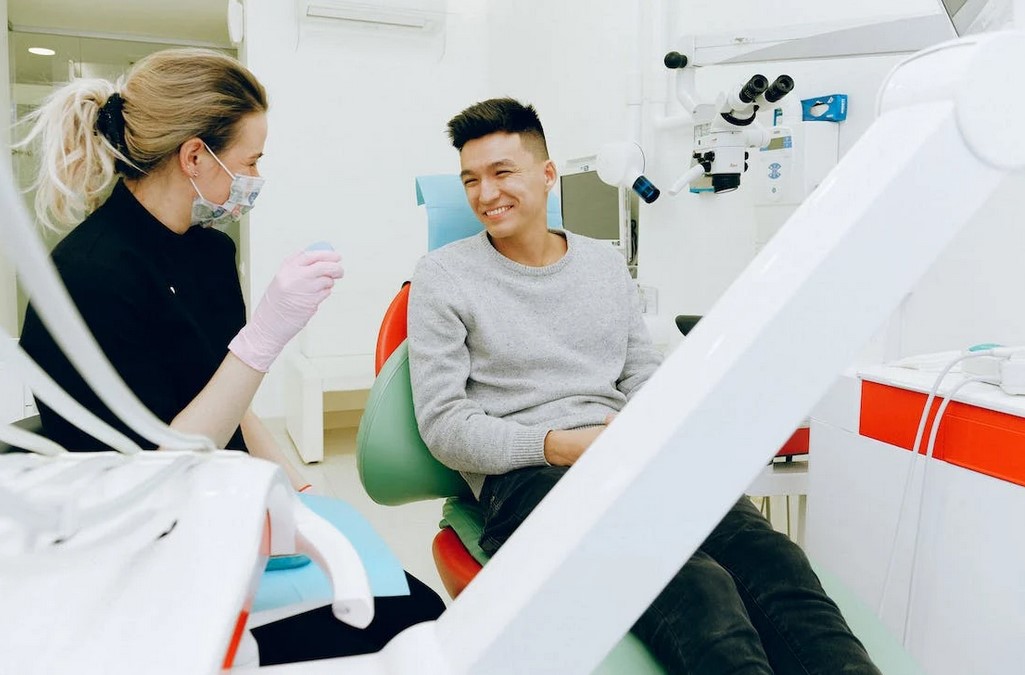All on 4 is an orthodontic treatment that is popular with people who want to correct their teeth. It has helped a lot of patients achieve the smile they have always dreamed of. However, there are some things you need to know about it. Visit https://myimplantdentist.com.au/getting-used-to-all-on-four/ to learn more!

Treatment options
If you have missing teeth, you may be considering treatment options for All on 4. Dental implants have been used for more than a decade and offer a number of advantages over traditional dentures. They are more comfortable, easier to maintain, and can restore a natural smile in a shorter time than other methods.
In most cases, All on-4 dental implant treatment is a single surgery. The procedure includes a surgical process followed by a prosthetic restoration. This allows the patient to have the entire procedure in a single day, thereby reducing recovery time and the overall cost of the treatment.
All on 4 treatment is ideal for people who have several missing teeth and are not able to afford the long treatment times of more traditional procedures. It is also ideal for patients who do not have enough bone density to support a full arch of dental implants.
An All on four surgical procedure can minimize the risk of irritation, bleeding, and infection. The surgery can also be monitored throughout the healing process.
Recovery time
In most cases, recovery time for All on 4 dental implants is short and painless. However, it is important to follow your dentist’s recommended guidelines. For example, if you are taking any medications, be sure to consult with your doctor before consuming them.
During the healing process, you may experience mild swelling. Swelling is normal and can last from two to three days after surgery. You can use ice packs or a wet, warm compress to help reduce the swelling.
After the first week, you can resume your normal soft food diet. This is a good idea, as it will help reduce the risk of infection. Soft foods include steamed fish, mashed vegetables, and braised meat.
It is best to avoid smoking, drinking alcohol, and consuming hard foods during your recovery. These factors can increase the risk of bleeding or bruising.
You should also make an effort to rest. This will help the gum tissue to heal. Some dentists recommend taking two or three days off from work.
Alternatives to All-on-4
The All-on-4 (or All-on-6) process uses four or more dental implants to secure a full set of teeth. Unlike conventional dentures, which sit directly on the gums, the teeth are attached to a titanium bar that clips into place.
Although all-on-four isn’t the only method to replace missing teeth, it’s a great way to go about it. It also has the potential to save you time and money.
All-on-four is a technologically advanced solution that enables patients to get their smile back in a day’s time. Unlike traditional dental procedures, which require months of bone grafting and other preparatory procedures, this procedure only requires minimal surgery. Once the gums heal, the new teeth are permanently fixed in place.
While the All-on-four has its merits, the same can be said of the more traditional approach. In fact, the most common alternative to the All-on-four is a more conventional implant procedure that involves a metal post that protrudes through the gums. This ensures less pressure on the grafted bone while healing.
Care for your new teeth
If you’re looking to get an All-on-4 teeth replacement, you’ll want to follow a few tips for care. This way, you can prevent complications after the procedure. In addition, you can also get your new teeth to last longer.
The first tip is to maintain good oral hygiene. You should brush your teeth twice a day, and floss once a day. Your mouthwash should include an antibacterial substance to kill germs that cause cavities and gum disease.
For the first few days after the procedure, you’ll need to refrain from eating or drinking hard or chewy foods. These can damage the implants. Instead, try soft foods like yogurt, pudding, cooked noodles, mashed potatoes, and smoothies.
You’ll also need to make sure you’re getting adequate rest. Not enough rest can slow down your healing process. It can also lead to complications and an extended recovery time.
You should also use an antibacterial mouthwash to keep your implants clean. Mouthwashes containing alcohol can dry your mouth, and interfere with your body’s natural ability to fight infections.